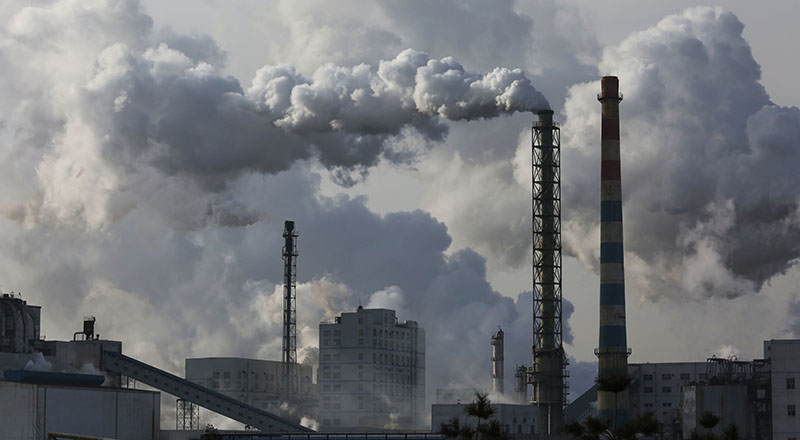The joint ratification of the Paris agreement by the US and China today marks a diplomatic transformation that may be the most significant achievement of Barack Obama’s presidency.
Presidents Xi Jinping and Obama made the announcement ahead of the G20 summit in Hangzhou, China, where climate change and green finance will be major points of discussion.
“Just as I believe the Paris agreement will ultimately prove to be a turning point for our planet, I believe that history will judge today’s efforts as pivotal,” said Obama, who was joined by Xi and UN secretary general Ban Ki-moon.
“Our response to climate change bears on the future of our people and the well-being of mankind,” said Xi.
It's official: the US has joined the #ParisAgreement pic.twitter.com/qYN1iRzSJk
— Brian Deese NARA (@Deese44) September 3, 2016
Earlier on Saturday, China’s state news agency Xinhua reported that the standing committee of China’s National People’s Congress had voted through a proposal to formally join the agreement.
“Ratifying the agreement is conducive to China’s development interests,” said the proposal.
The Paris agreement has been signed by 180 countries, but a further step is needed for it to become law. At least 55 countries accounting for 55% of global emissions must ratify the treaty. Saturday’s announcement brings the total countries to 26 and the portion of emissions caught by the agreement soars from 1.1% to 39.1%.
Analysis: So the Paris climate deal enters into force – then what?
The US-China announcement would be a “a pivotal moment for our planet”, said Rhea Suh, president of the Natural Resources Defense Council.
With 32 other countries having made commitments to ratify the agreement this year, the agreement looks set to become international law before the end of 2016. Although the treaty isn’t designed to be fully operational until 2020, the political momentum this would signify is important as nations will soon be asked to increase their carbon cuts.
May Boeve, executive director of 350.org, said the early ratification by the world’s two biggest fossil fuel consumers was “another warning bell for investors to take climate risk seriously and divest from fossil fuel companies”.
Even so, she warned, a “dangerous gap” remained “between what the governments are signing up to, what they are doing, and the real ambition we need to avert the worst impacts of climate change”.
With US + China poised to join, #ParisAgreement likely to go into force in 16! See scenario: https://t.co/n2sSu2tGKq pic.twitter.com/sjtZ7MEbE4
— WRI Climate (@WRIClimate) September 3, 2016
The cuts proposed by the G20, which together account for three quarters of the world’s greenhouse gas emissions, under the Paris accord were “far from sufficient” to keep the world from warming more than 2C, according to a report released on Thursday ahead of the meeting of leaders.
David Waskow, international climate director for the World Resources Institute, said the moment marked a crucial shift in the relationship between the US and China. “Never before have these two countries worked so closely together to address a global challenge.”
The images from Hangzhou of the leaders of the world’s two most powerful countries together ratifying a climate agreement, are a long way from the scenes just seven years ago at climate talks in Copenhagen when Obama had to burst uninvited into a meeting to even engage with the Chinese.
Obama is fond of talking about the long, slow turn of history. But from Copenhagen, to the leaders’ announcement of a bilateral deal in 2014 in the Great Hall of Beijing, to Paris last year, the wheels have spun like a race car before it gains traction.
Where do #G20 countries stand in ratifying the Paris Agreement? @jschmidtnrdc got excited on #excel and made this pic.twitter.com/89ANAJcq8V
— Climate Home News (@ClimateHome) September 1, 2016
For the US, the problem of climate change has long been political. The Kyoto protocol foundered in the US because it was clear it would never be passed by a hostile senate. The Paris deal gets around that by acting as an an executive agreement rather than a treaty. This means Obama can join without taking the decision to the Republican-controlled senate. His domestic clean power plan was similarly enacted without passage through the legislature.
In China the decision of whether or not to act was always based on a cost-benefit analysis, says Ranping Song from the World Resources Institute. In 2009, when Obama and the Europeans were trying to land a legally-binding climate accord the Chinese economy, fed by coal, steel and cement, was roaring. The Chinese viewed a prospective deal as a pulling up of the drawbridge.

Obama and Xi tour the White House in September 2015 (Pic: White House/Flickr)
But by 2013, things had changed, said Song: “They actually believe that [cutting emissions is] the right thing to increase their service economy. To de-emphasise their heavy industries, the over capacity of steel and cement industries. That has been proved to be not working by their economic slow-down and they are trying to find a new way to boost their economy. If the old model is not working, then you need to figure out some new model to make it work.”
The culmination of a creaking industrial sector, an increased awareness of China’s vulnerability to the future ravages of global warming and massive public pressure to deal with city air pollution created an opportunity for China to shift and be shifted. In the US, the announcement of the clean power plan in 2014 sent a clear message to the Chinese that Obama was serious about his own backyard.
Obama and his former climate envoy Todd Stern took their chance, brokering a deal with Xi in 2014 that laid the foundations for the Paris agreement and today’s announcement.
“There’s no question that this historic partnership on climate change will be one of the defining legacies of Obama’s presidency,” said Waskow.
